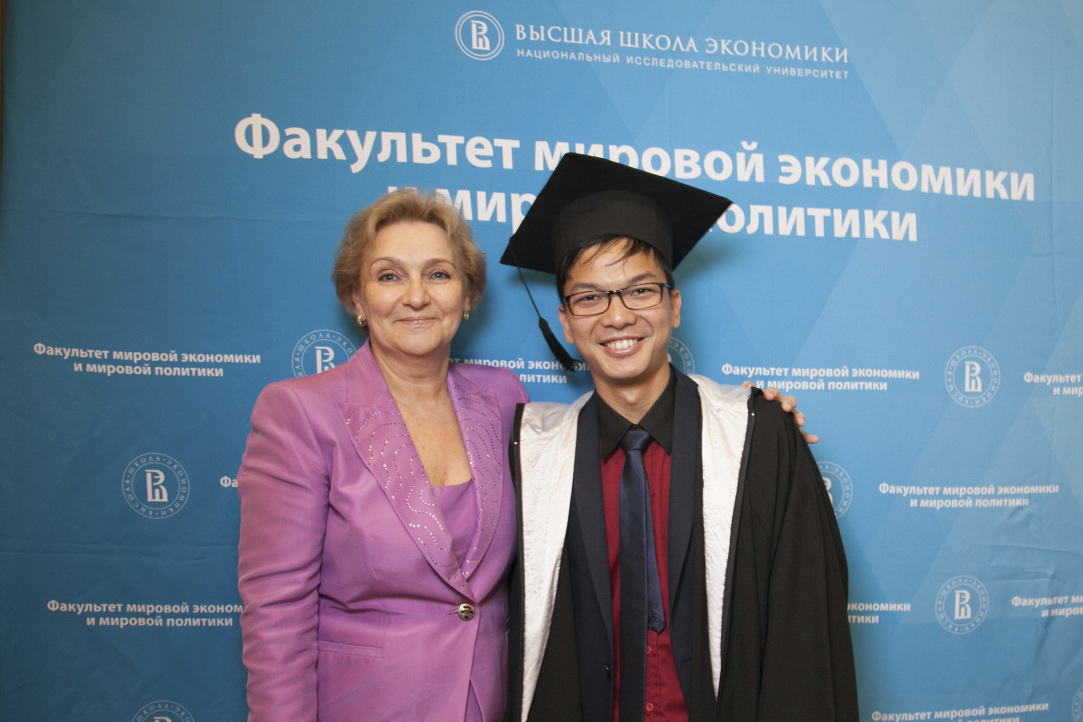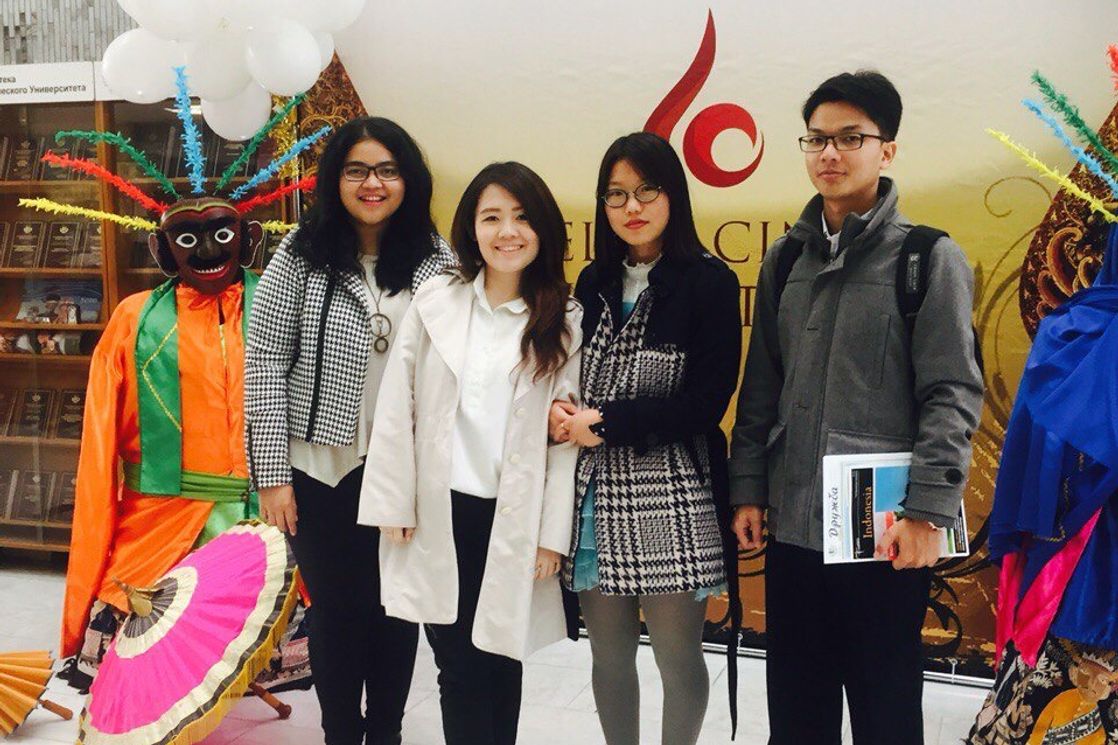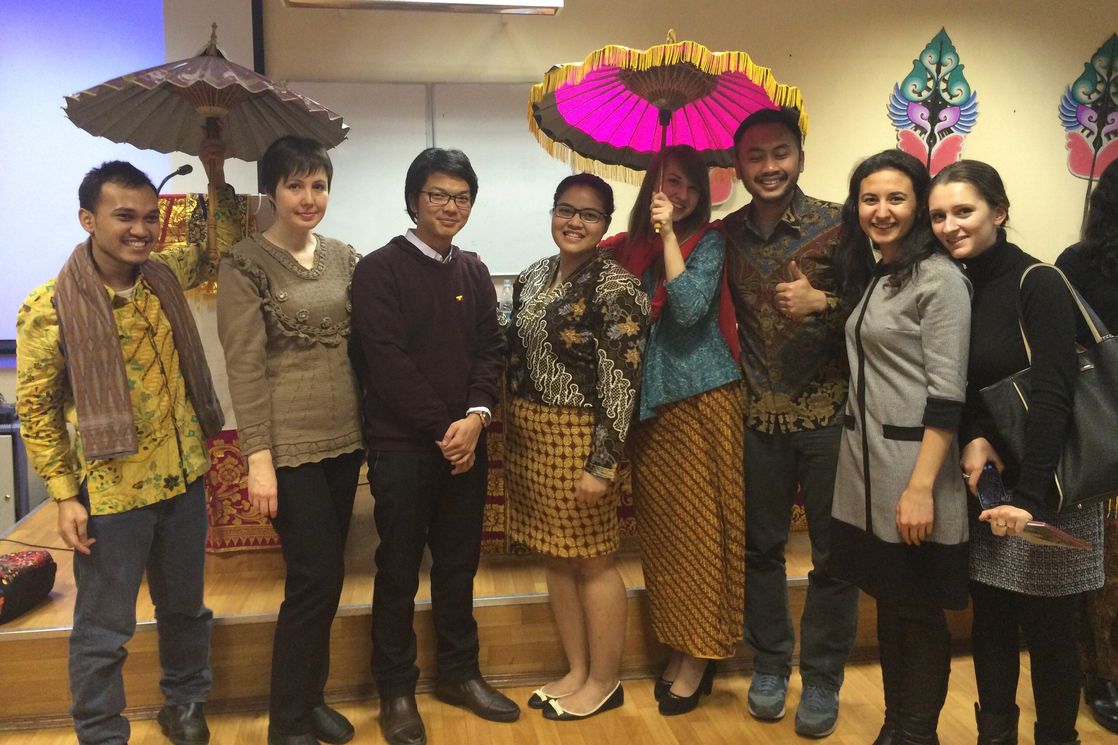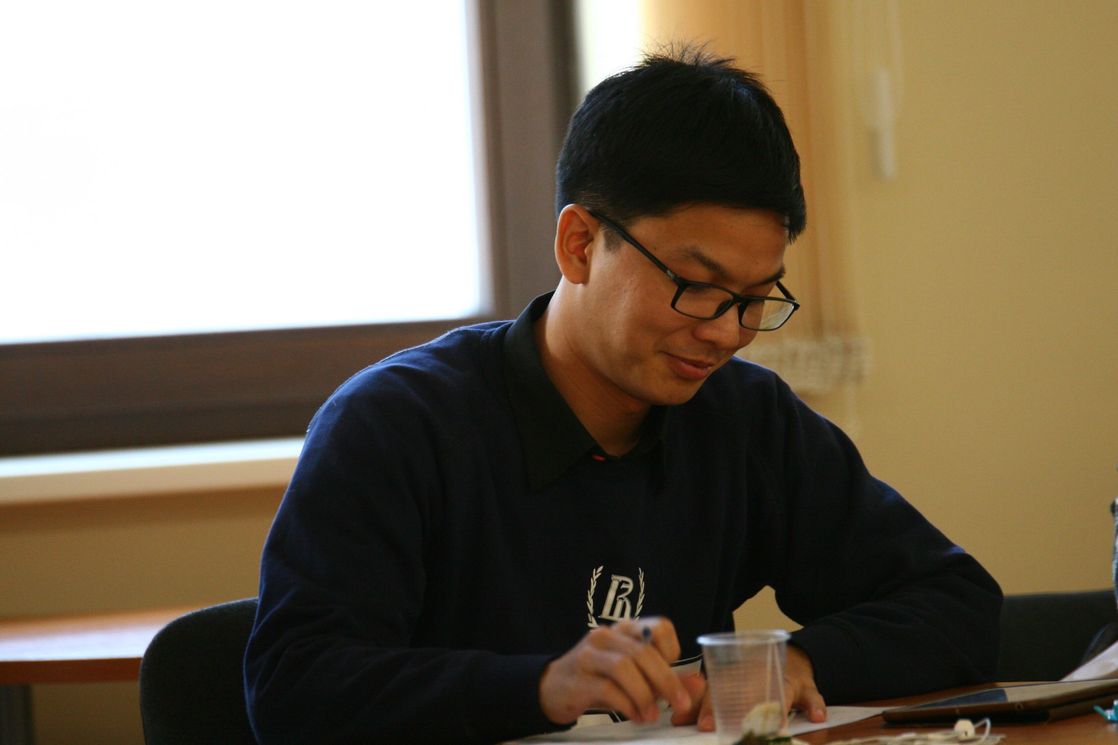‘My PhD Taught Me about Life, Professionalism, Research, and Controlling My Emotions’

Wai Yan Phyo Naing first came to HSE University from Myanmar to enrol in a master’s programme at the Faculty of World Economy and World Affairs in 2015. After graduation, he decided to pursue a PhD at the Doctoral School of International and Regional Studies. On February 16, 2023, he successfully defended his dissertation on ‘Evolution of Myanmar’s Policy Towards China (1988–2020)’.

Following a Childhood Dream
I heard about HSE university from my friend. I checked the university’s website and was impressed with its outstanding academic achievements and image in international university rankings. Therefore, I decided to apply to the Master’s in Socioeconomic and Political Development of Modern Asia in 2015.
Studying at a foreign university was my childhood dream. My professors, classmates and the administration teams were very supportive, charming and friendly to international students. I never lost those first impressions
After the master’s, I decided to pursue a PhD at HSE since I was delighted with the academic training here. Applying was a heart-pounding experience, since I heard that the HSE’s PhD admission process is tough, especially for scholarship students. In 2018, over 400 students applied for the PhD scholarship, and only 199 students were awarded scholarships. I carefully organised all the necessary documents for the admission process. I also closely discussed everything with the supervisor of my master’s programme and followed her advice. However, since I had finished a graduate programme at HSE, I did not have a difficult time with the interviewers and I answered all their questions.
HSE is the most outstanding academic university in Russia, and it is located in one of the world's most beautiful architectural cities. Every student can enjoy a higher education and the charm of Moscow
Life in Moscow
I was not familiar with Moscow before I applied for a Russian scholarship, so I tried to learn about Russia and Moscow before arriving. When I landed, the fresh Moscow air made me realise I was really here now. After a month, Moscow felt like a paradise for tourists.

The thing I like most about Moscow is its metro system. If I had a superpower, I would create a similar one in Myanmar. Moscow’s metro is a masterpiece of Russian architecture and world heritage. Another thing I like here is the big parks. Moscow’s parks have fresh forest air and lovely flowers in the summer, while ice skating is popular in winter.
Since I studied on an international programme, I did not learn the Russian language seriously. That was a huge mistake in Moscow.
The university provides one free semester of a Russian language course for all international students. For me, the Russian ‘r’ is the most challenging letter—I still cannot pronounce it correctly
Living Libraries
The best thing about my journey at HSE has been the outstanding, kind, and intelligent professors and lecturers. They are gurus and ‘living libraries’ in their respective fields. One professor in my master’s classes never used any books or presentations during his teaching, yet he never forgot the essential facts about his subject. We never felt bored during his class, since he used discussion methods and storytelling more than one-sided teaching.
In my time at HSE, my supervisor Olga Volosyuk is the person who impressed me the most. As a student from a third-world country, I needed to learn more than my classmates in Research Methodology and other complex subjects. She spent a lot of her own time explaining to me ‘how to do research, think and study’. When I was struggling with the PhD, she told me to think carefully, listened to my feelings, and advised me how to deal with bad feelings and unpleasant times.
I learned a lot about life, professionalism, research, and how to control my emotions during my PhD
PhD Thesis Tips
Before reaching the last defence, I had to pass many pre-defences in the department and a dissertation committee with outside experts in my field.

There is one main thing I want to share with those who are starting to write their thesis now: please do it step by step. I learnt that from my supervisor. I wanted to finish everything as soon as possible, and ended up making many mistakes with my research.
Based on my experience, I want to advise future PhD candidates at HSE to take their time with their research. If you spend at least six hours a day on research, you will see enjoyable progress within six months
Another important thing is making notes. In my experience, you cannot write anything if you don’t have proper messages for your research. If you are doing eight hours a day, you should give yourself at least six hours to read literature and make notes. You might feel that you are spending a lot of time reading and making notes, but you will find that writing a thesis is not difficult and does not need to take much time if you have good notes.
Plans for the Future
Currently, I am working as a Programme Consultant and Field Technical Officer at the Raks Thai Foundation. I am also continuing my research on Myanmar politics, Myanmar-China Relations, Southeast Asian politics, and migrant workers in the Southeast Asia region.
My life goal is simple: I want to be an international expert in my research field. I want to do research and share my research until the last day of my life
See also:
‘Keep Working, Keep Publishing—Consistency Matters’
Ziyuan Zhu, from Beijing, China, is an international PhD student at the Institute for Public Administration and Governance at HSE University in Moscow. In this interview with the HSE News Service, Ziyuan talks about how studies can influence one’s outlook on life, comparing public service models in different countries, and why being a Chinese student in Russia is advantageous in research.
‘Start Working on Your Articles from the Very Beginning of Your PhD’
Andrés Castañón Rincón, from Spain, is a doctoral student at the HSE School of Philosophy and Cultural Studies in Moscow working on the history of Soviet Marxism philosophy. In his interview with the HSE News Service, he explains why studying Soviet Marxism is relevant today, talks about the advantages and challenges of his work in Moscow as an international researcher, and gives some advice to beginner PhD students.
‘Education is the Mother of all Disciplines’
Moses Oluoke Omopekunola, from Nigeria, is a second-year student of the Science of Learning and Assessment (SOLA) programme. Intent on pursuing a career in psychometrics, he has already joined the PhD programme in Education to deepen his knowledge of the theory and methodology of learning. In this interview with the HSE News Service, Moses explains how his master’s programme aligns with his future plans, recalls the challenges he has faced, and shares the most valuable lessons he has learned so far.
Russian and Chinese Scholars Share Experience of Transformation of Doctoral Education
The Russian and Chinese postgraduate education systems originally borrowed their institutional frameworks from the Soviet Union. However, in the 21st century, they have evolved along different paths. While key performance indicators for postgraduate programmes in Russia are declining, China is seeing a rapid increase in the number of postgraduate students. These contrasting trajectories and the reforms undertaken in each country in recent decades were the focus of a roundtable discussion held as part of the 25th Yasin (April) International Academic Conference.
‘The Defence Was Both Interesting and Nerve-Wracking’
Ana Livia Araujo Esteves, from Brazil, lecturer at the HSE School of International Regional Studies, has recently defended her PhD at HSE University. In her interview with the HSE News Service, she talks about her research into Brazilian–Russian relations, the difficulties of the thesis defence process, and her further plans in academia.
‘My PhD Journey Was Made Possible by My Studies at HSE’
Tianxiong Yu, 25, completed his Master’s in Economics and Economic Policy at HSE University in Moscow. He spent the second year of the programme at the University of Luxembourg and has since enrolled there on a doctoral programme. While it is no longer a joint programme, HSE graduates continue to successfully pursue PhDs at international universities. Tianxiong spoke to the HSE News Service about his memories of his master’s course and how his time at HSE paved the way for his doctoral research.
‘Getting a PhD Is Just the Beginning’
In autumn 2024, Yea Rem Choi, from South Korea, Junior Research Fellow at the International Laboratory for Supercomputer Atomistic Modelling and Multi-scale Analysis and assistant at the HSE MIEM School of Applied Mathematics, defended his doctoral dissertation on applied mathematics at HSE University. Yea Rem Choi talked to the HSE News Service about the soft skills that helped him in his research, how he is building a career, and why he chose HSE University for his doctoral studies.
‘My Thesis Defence Was a Lively Discussion’
Han Zhang, from China, has worked at the International Laboratory for Evaluation of Practices and Innovations in Education at HSE University-Moscow since 2023. In October 2024, she successfully defended her PhD thesis on the relationship between collaborative peer editing and the quality of academic writing in a second language. She spoke with the HSE News Service about why she chose to join HSE University and how her research can be used to improve student writing performance.
Doctoral Student Explores the Challenges Faced by International PhD Seekers During the Pandemic
In late June 2024, a pre-defence of Nurudeen Abdul-Rahaman’s dissertation took place at the HSE Institute of Education. Nurudeen Abdul-Rahaman, a doctoral student from Ghana, has presented his dissertation ‘Academic and Social Integration of Foreign Doctoral Students at Russian Universities during the Covid-19 Pandemic’ for the degree of Candidate of Sciences in Education (PhD).The HSE News Service spoke with Nurudeen as well as his academic supervisor, Evgeniy Terentev, Director of the Institute of Education, about their extensive research on international doctoral students in Russia and Nurudeen's contribution to this research.
‘We Cannot Understand the Modern Ideological Confrontation without the Accusations that Emerged during the Lausanne Process’
Rainer Matos Franco, from Mexico, defended his PhD thesis with honours at HSE University this June. In his dissertation, Rainer Matos Franco examines the history of anticommunism in Europe during the 1920s. The HSE News Service spoke with Rainer and his academic supervisor, Tatiana Borisova, about the significance of the Lausanne Process for the Cold War and contemporary history, the opportunities provided by HSE University for international PhD candidates, and the challenges of working with a vast database of historical sources.


